Taking the Reins
Providing therapeutic horseback riding to Montanans in need

Story and photos by
Kennedy Delap
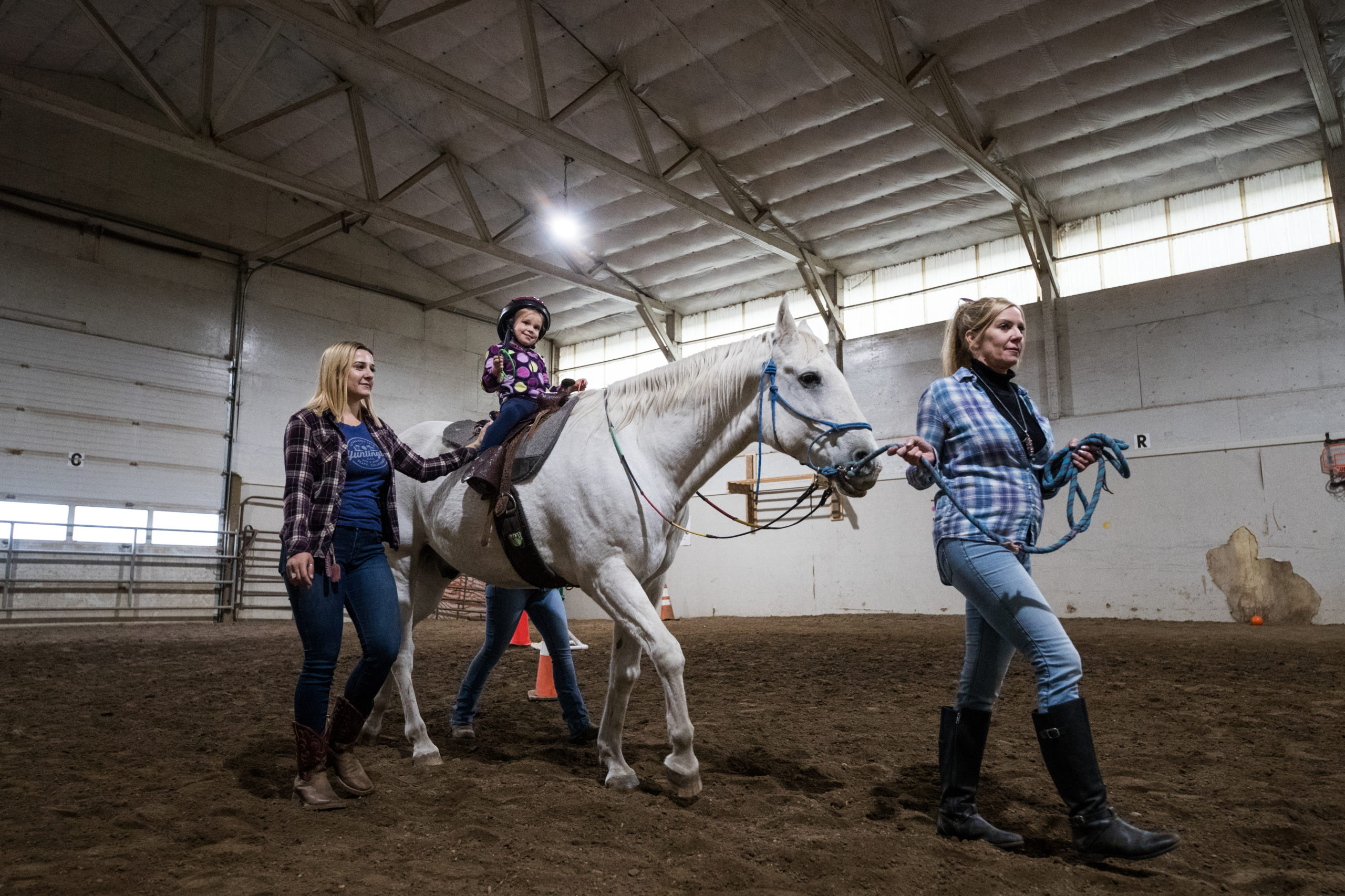
Volunteer Jayne Wilkinson leads Jack, while volunteer Paxton Sanchez holds onto Hazel Guerette’s leg for support as she participates in her riding lesson on Wednesday, October 6, 2021. “When she first started she was pretty shy,” says Sam Morton, staff physical therapist, reflecting on Guerette’s progress at Trotting Horse Therapeutic Riding. Guerette gives Morton and the volunteers waves and smiles, and she repeats back words to them, even telling Jack to “Go!” every once in a while.
Hazel Guerette is just 4 years old. She has been coming to Trotting Horse Therapeutic Riding Center once a week since the spring of this year. She skips down the aisle of the barn between the horse stalls, holding her mother’s hand, chanting “Horsies!” as she goes. Guerette is autistic and spends a lot of time in different therapy sessions working on her development. Riding lessons are a way for her to have fun and get out of her shell, escaping the hard work.
“She lights up when I say she is going to go ride,” Erica Sandiland, her mother, said.
Guerette loves the horses’ tails, their big noses and their ears.
“She doesn’t love a lot of things,” her mother said. “The horses help connect her to the world and to her body in a way that she enjoys.”
She puts her arms up as Trotting Horse volunteers Jayne Wilkinson and Paxton Sanchez lift her up by her armpits into a tiny leather saddle perched on a huge, gray horse. The horse’s name is Jack, an old high-competition roping horse who was donated to the stable after his career had ended. He walks around the arena with a gentle trot, and Guerette beams at her mother from his back.
Guerette is one of more than 50 students from ages 3 to 75 who come to Trotting Horse.
Near the base of Blue Mountain, rolling pastures surround Trotting Horse, filled with dappled gray horses, palominos with flaxen manes and old red mares nibbling fall grass.
A large barn is situated in the middle of the ranch where stalls line the aisle leading to an arena entrance. There is a wall filled with dusty children’s helmets, some with little handprints on them. Horses nicker as volunteers carry grain buckets up and down the barn.
Trotting Horse is a therapeutic riding center founded by Cyndi Meyer in 2015. Meyer bought the ranch 16 years ago, and for the first decade it was a place where people could board their horses. When Meyer retired from special education, however, she wanted to continue her work helping children with disabilities.
“There are not enough activities for them, in my opinion, where they get to decide how the hour runs,” Meyer said.
Lessons at Trotting Horse can be spent any way the student wishes — visiting, grooming or riding. The goals of each student vary too. Guerette’s goal is to spend her time doing something fun, but the benefits have gone beyond her expectations. Her physical therapist, Samantha Morton, helps her work on her motor skills and core strength during her lessons. Morton has her throw little Velcro balls at a target, encouraging Hazel to bend and twist in ways that engage her core and body.
“That mind-body connection. That’s a great bonus of it,” Sandiland said about the physical aspect of her daughter’s riding.
Each rider has a different goal, some may want to stretch their legs, some seek the comfort of the horses for anxiety and stress relief.
“[Horses] can sense you,” Nita Kattell, a board member, volunteer and instructor, said. “They can feel your heartbeat, they just have this innate sense of … just kind of what’s happening.”
“[Horses] can sense you,” Nita Kattell, a board member, volunteer and instructor, said. “They can feel your heartbeat, they just have this innate sense of … just kind of what’s happening.”
When a rider is feeling nervous or uncomfortable, the horses react. Not only do these animals mirror their riders’ emotions, but they also understand their jobs and show kindness to the children and adults who climb on their backs.
Kattell is also a retired teacher, and was a big part of getting Trotting Horse Ranch started, alongside Meyer. Kattell boarded horses at Trotting Horse back in 2015 when therapy was first introduced to the ranch, and she understands firsthand how having a relationship with a horse can help lower anxiety. It’s why she enjoys helping others who come there.
It’s something bigger than herself, she said. She has seen her students progress until they can ride independently, weaving through cones and effectively communicating with the horses.
Trotting Horse is a place where people come together, forming connections with one another and the horses that call this place home.
“I feel so happy because I know how much fun it is,” Sandiland said. “I know how amazing it is to have a connection with a thing that is bigger than you, with an animal. Something that just is kind and gets you. The horses have been so sweet with Hazel.”
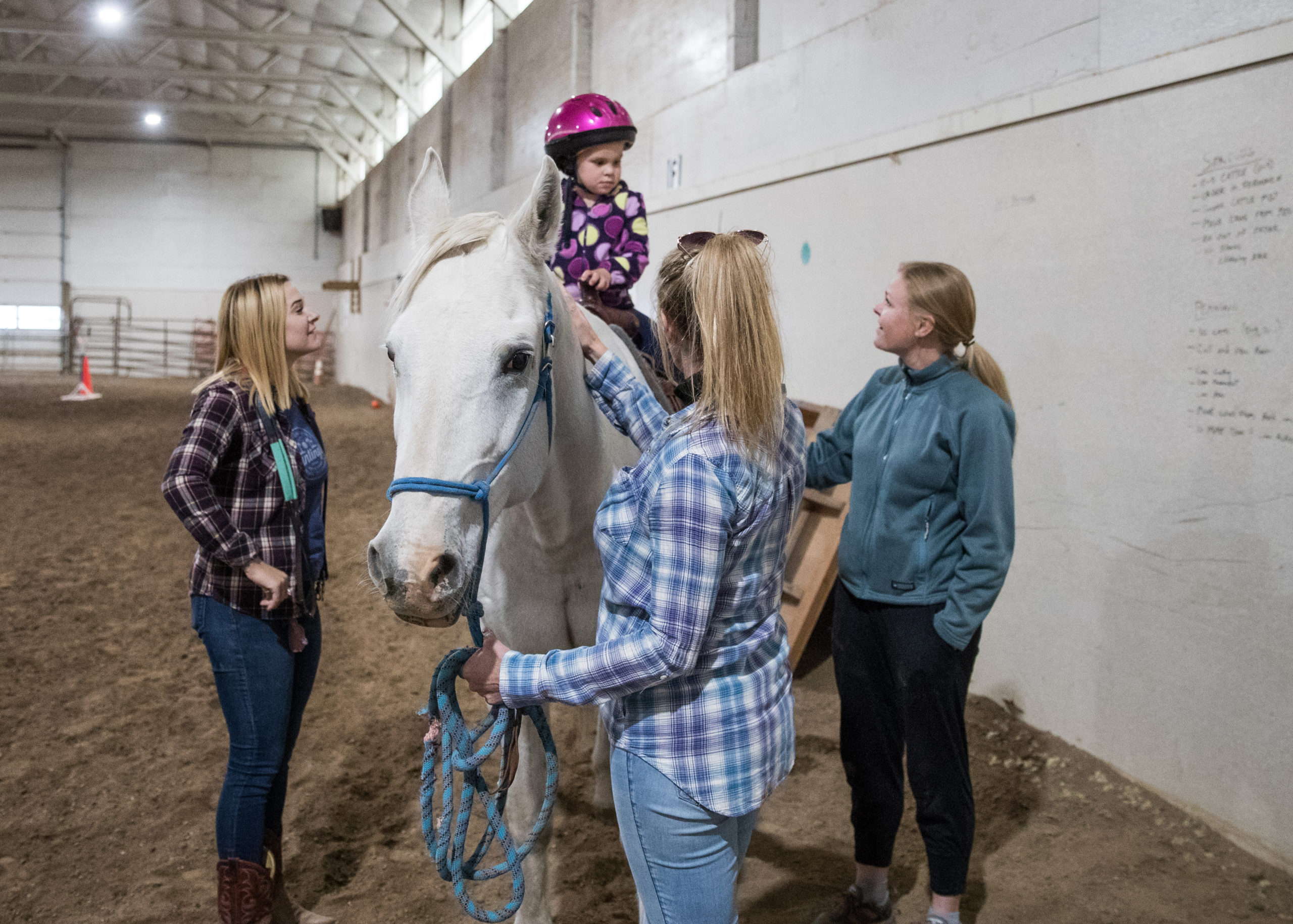
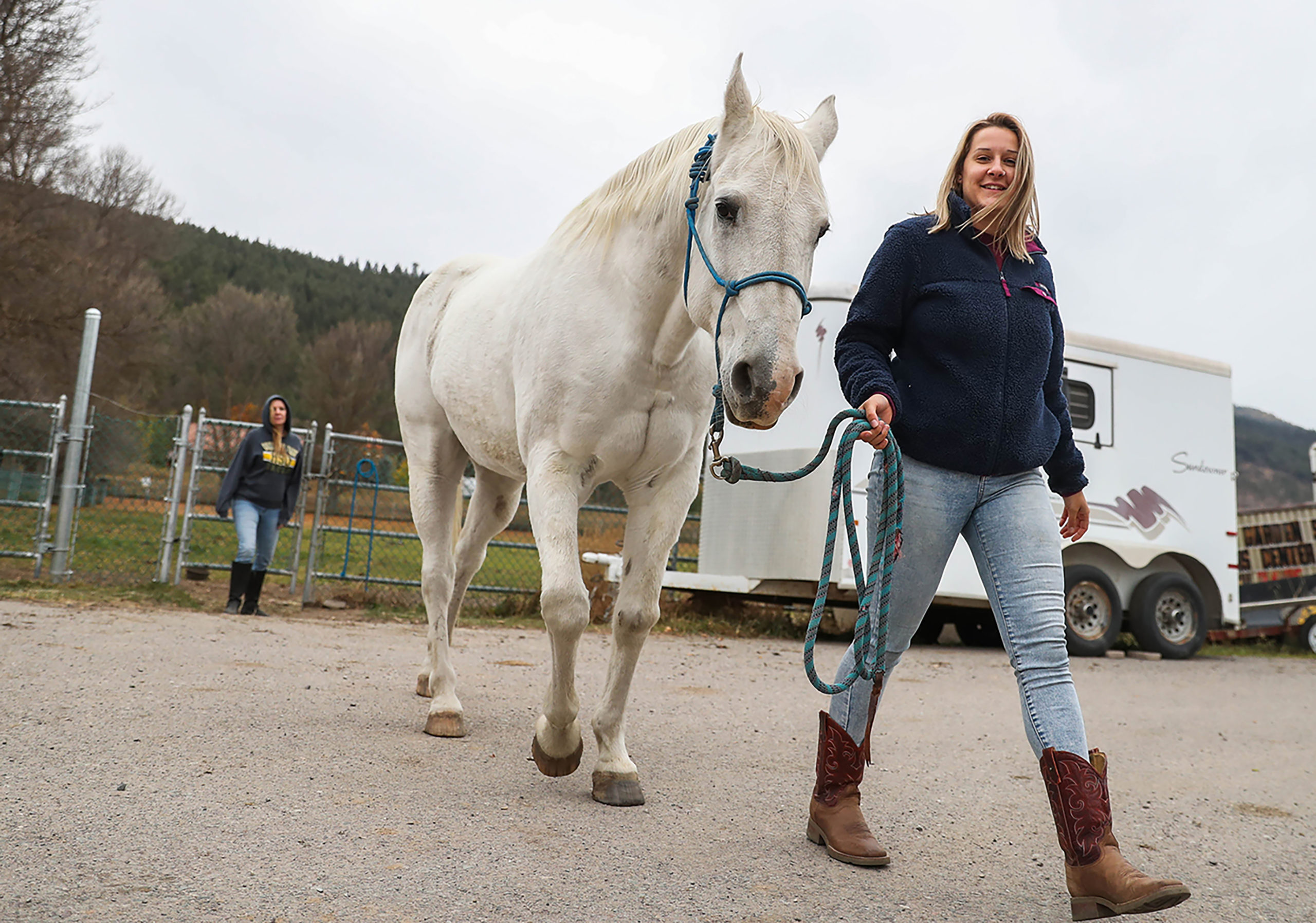
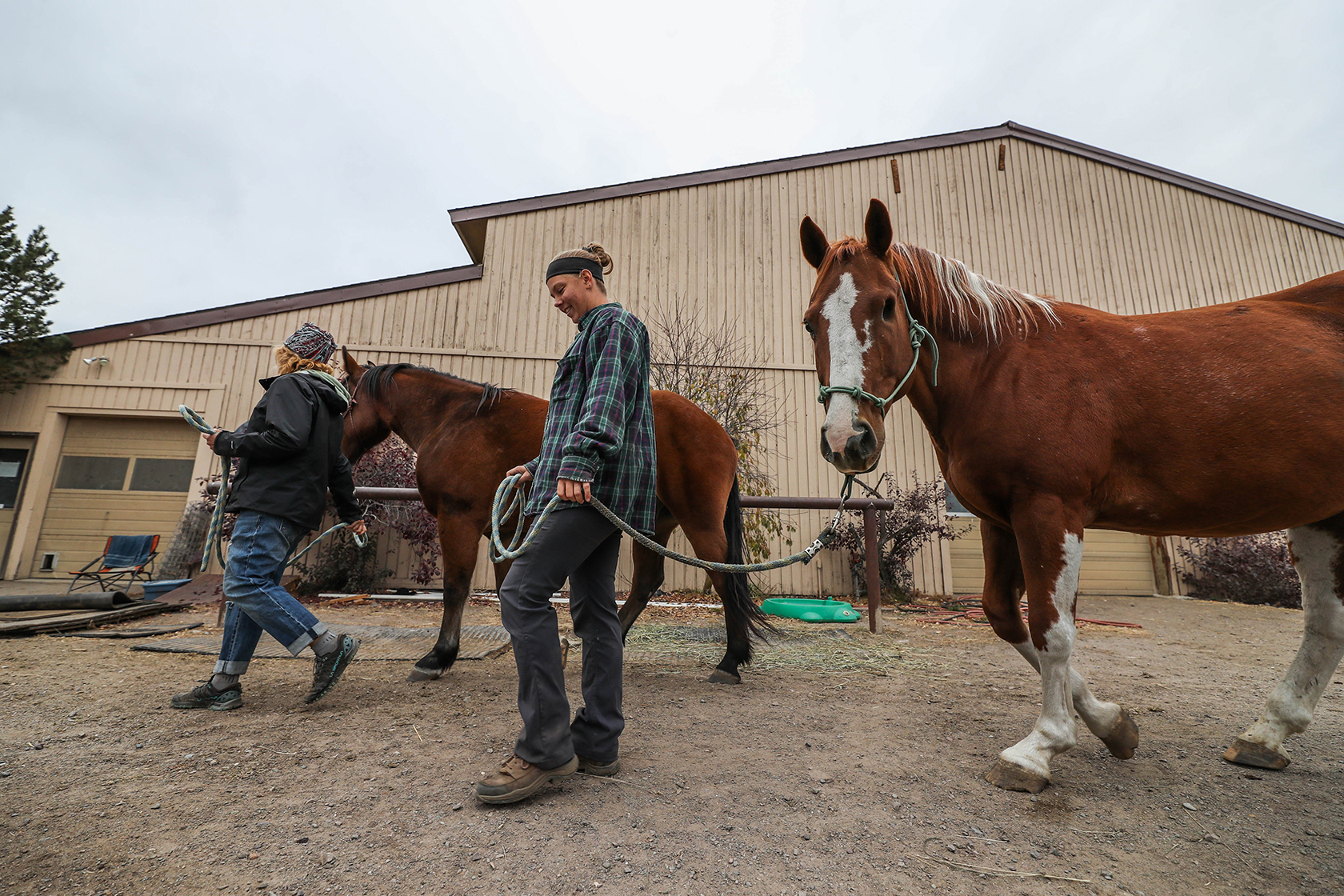
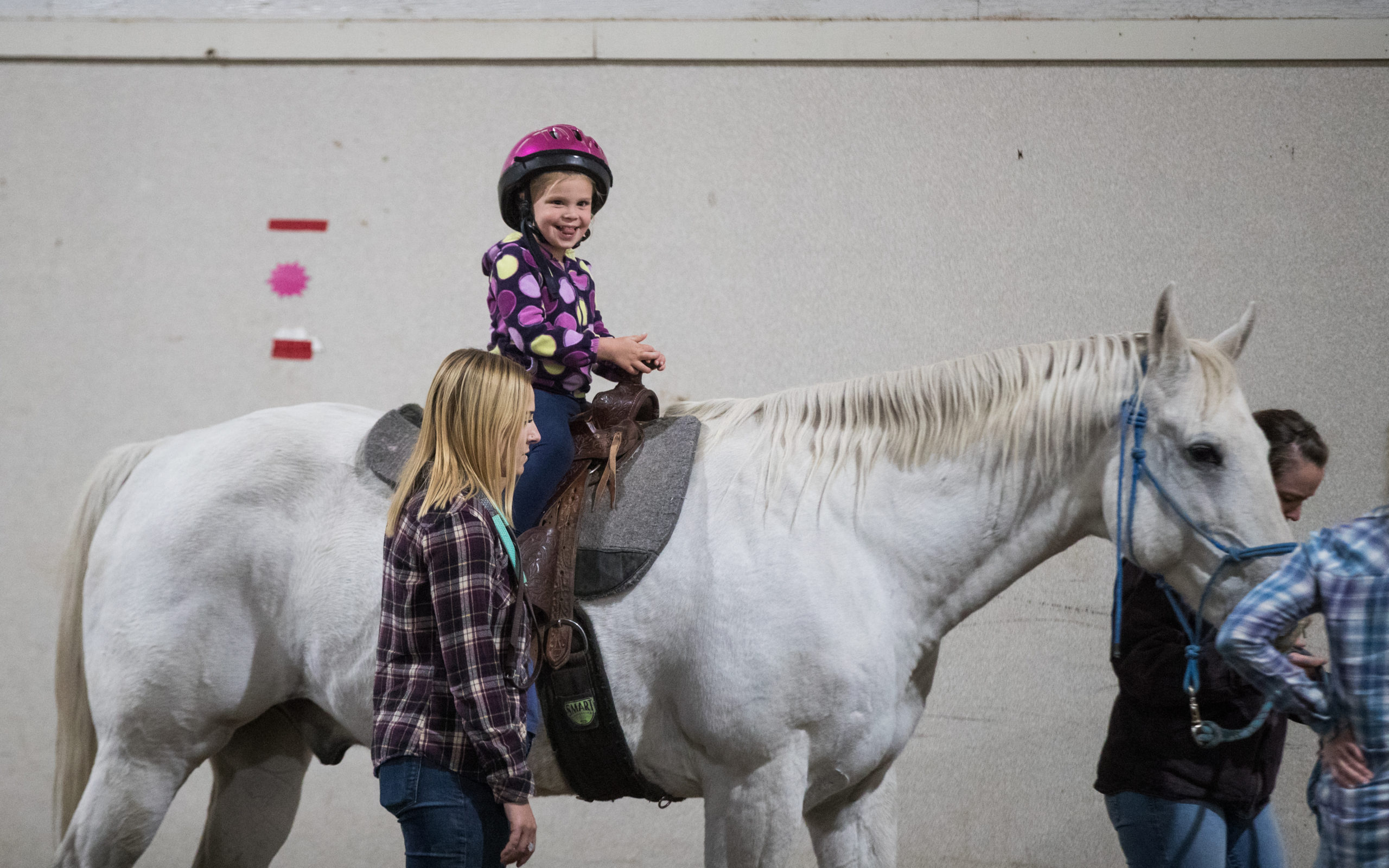
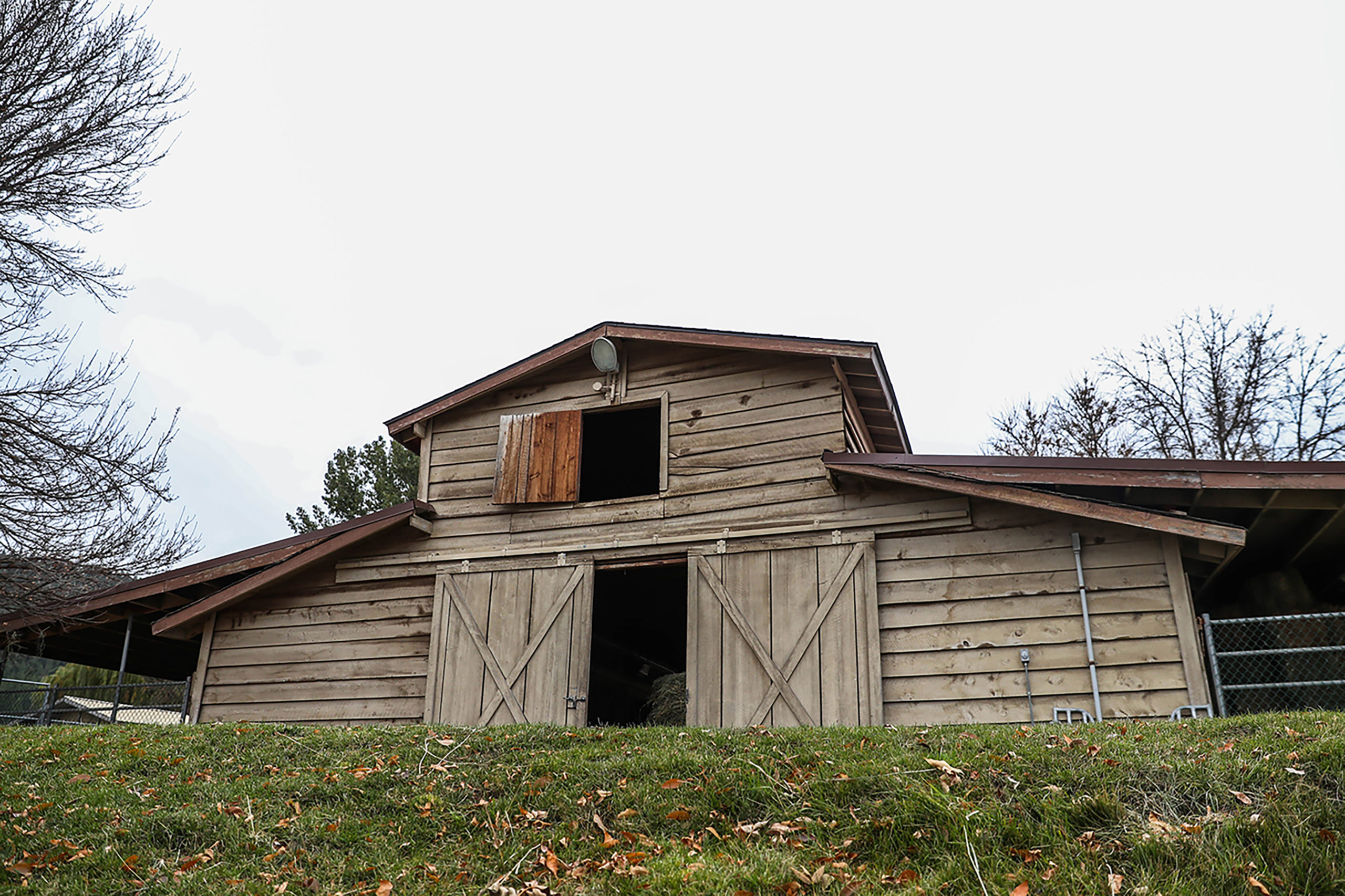
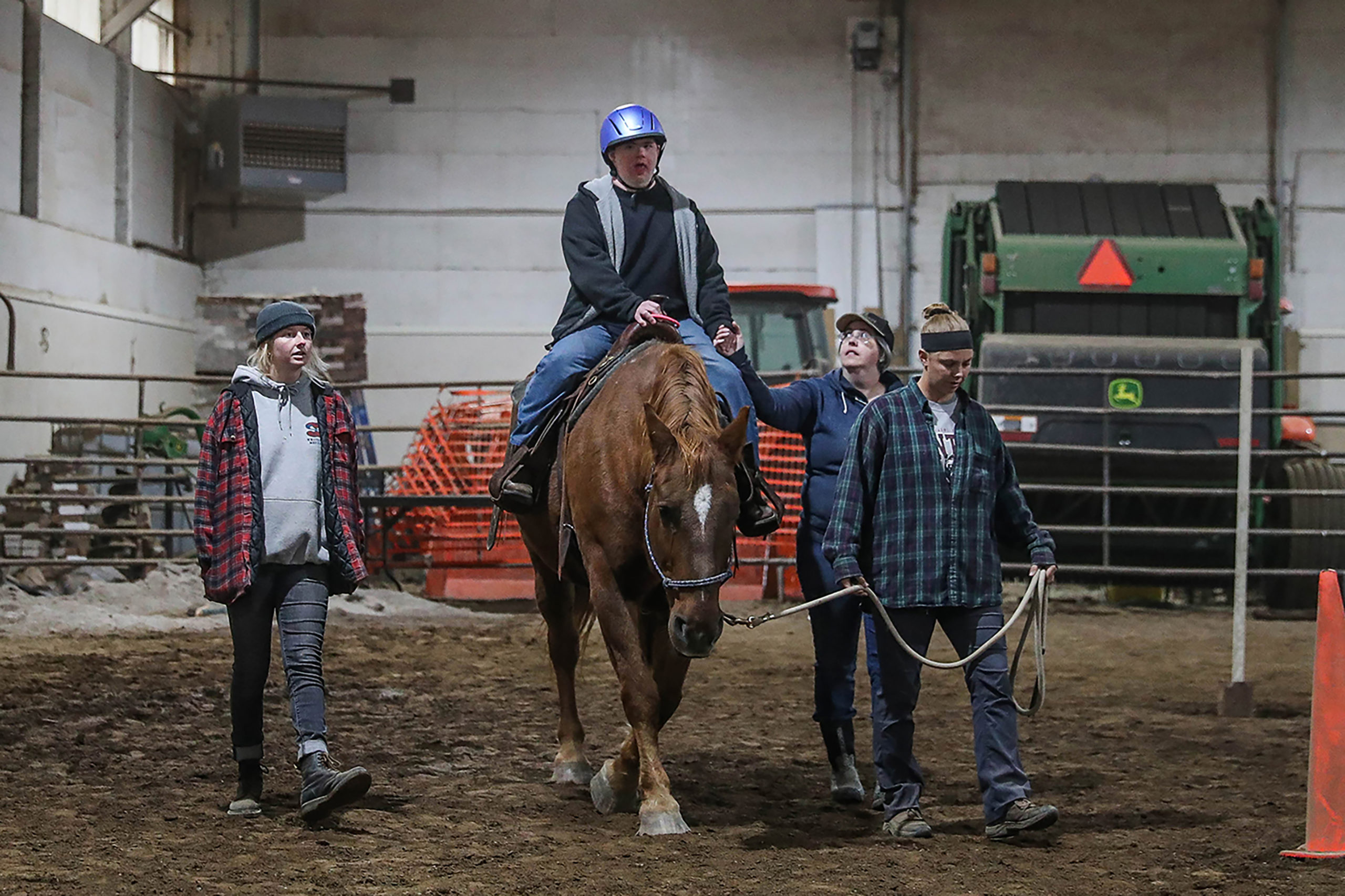
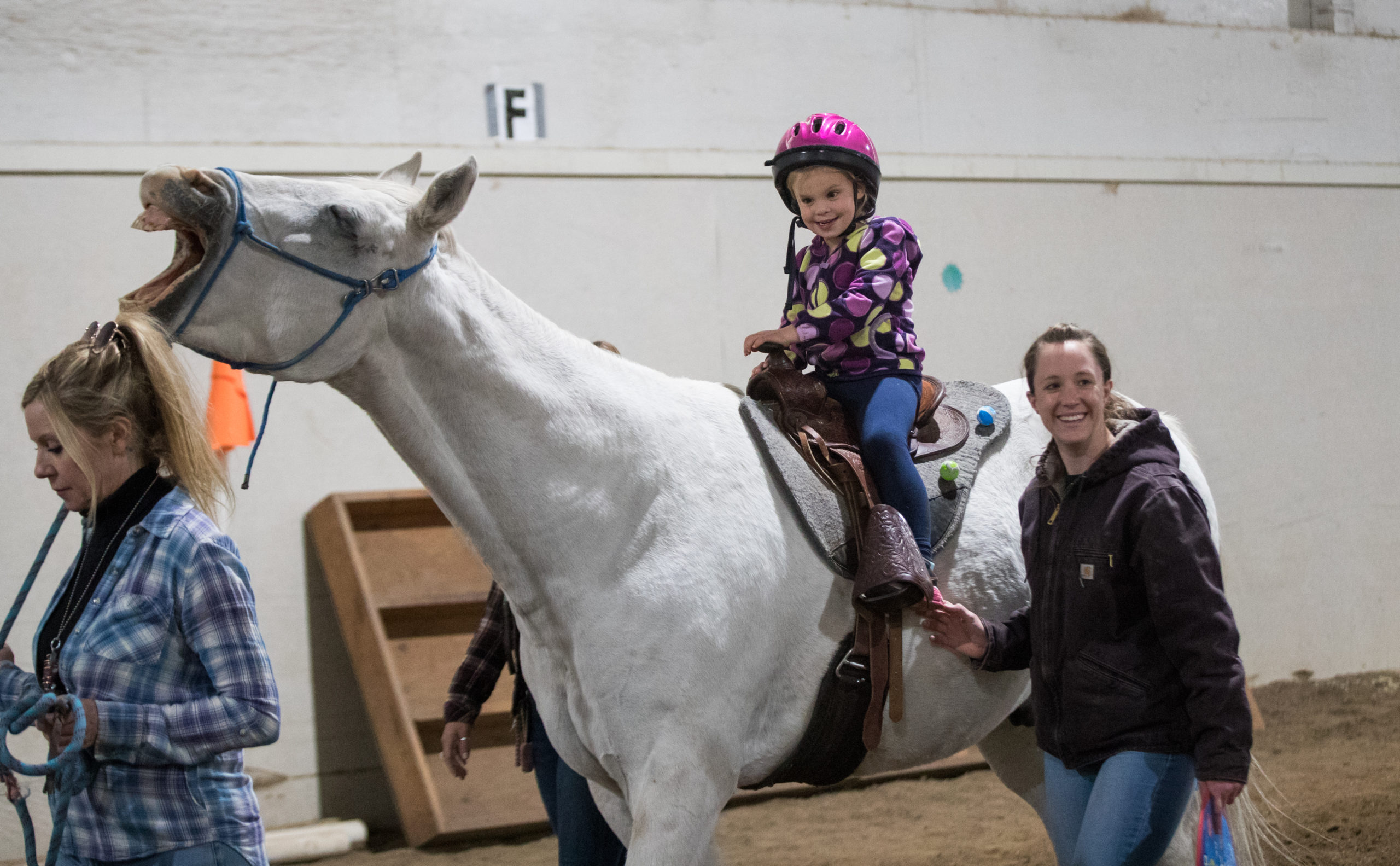
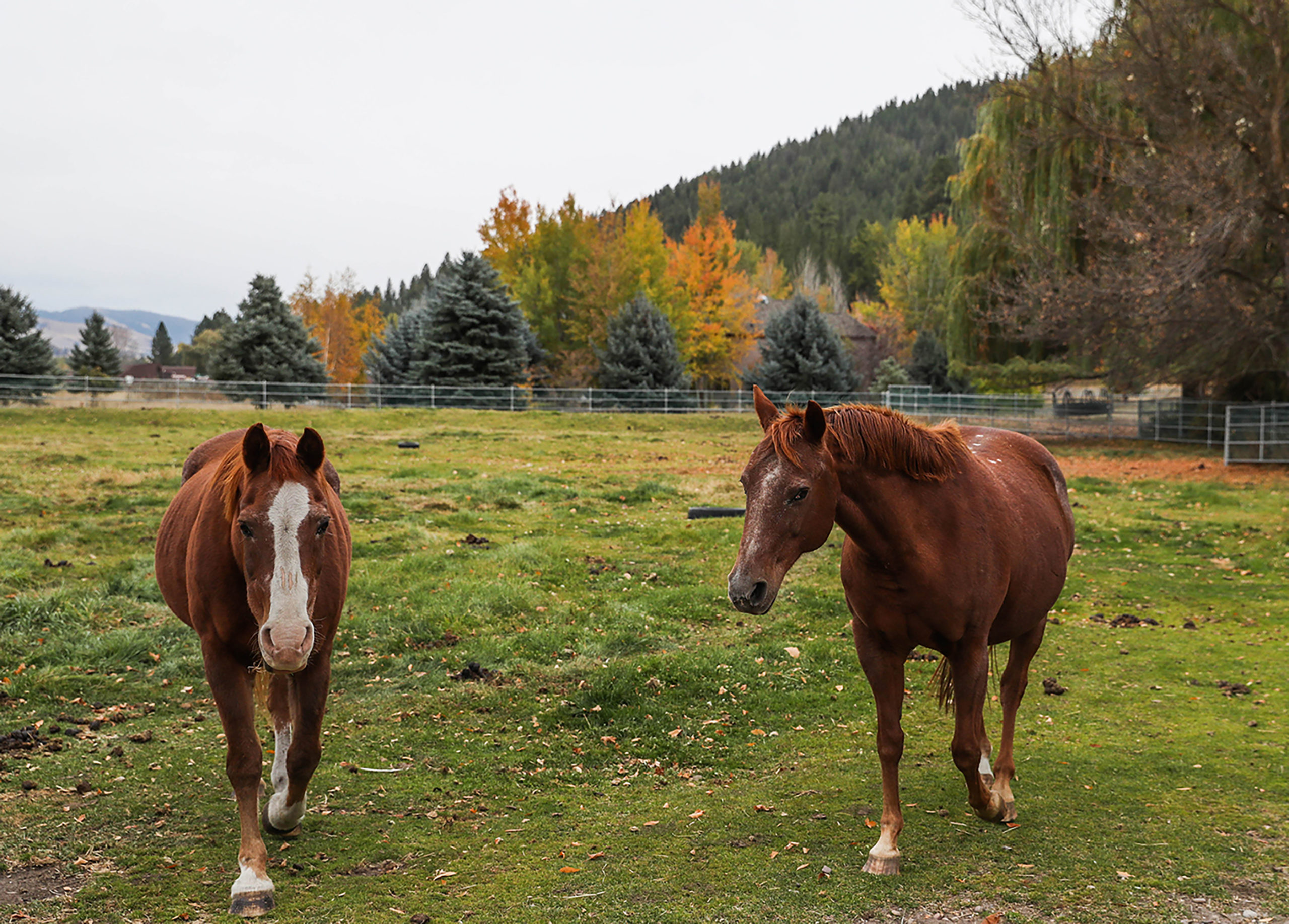
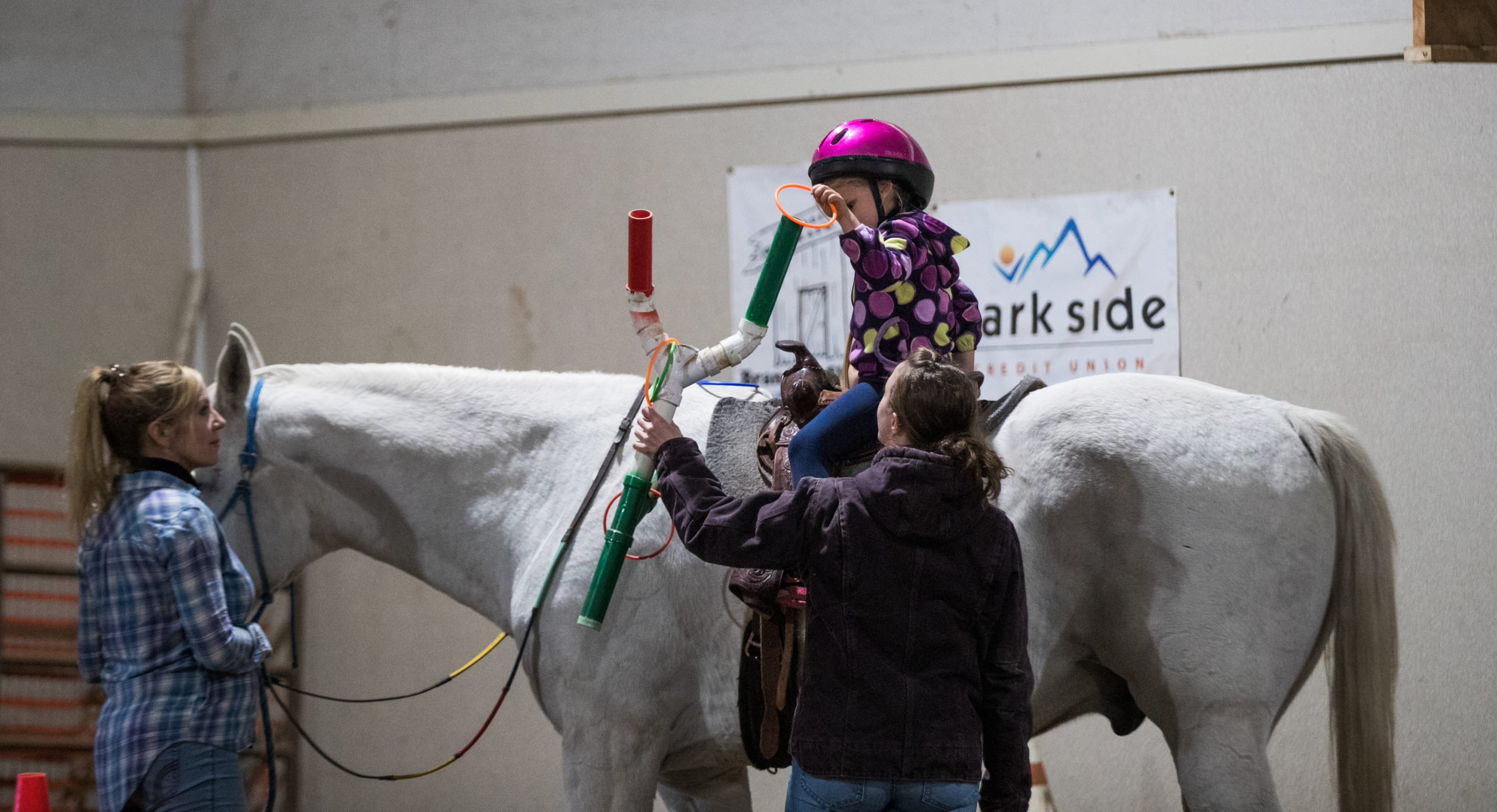
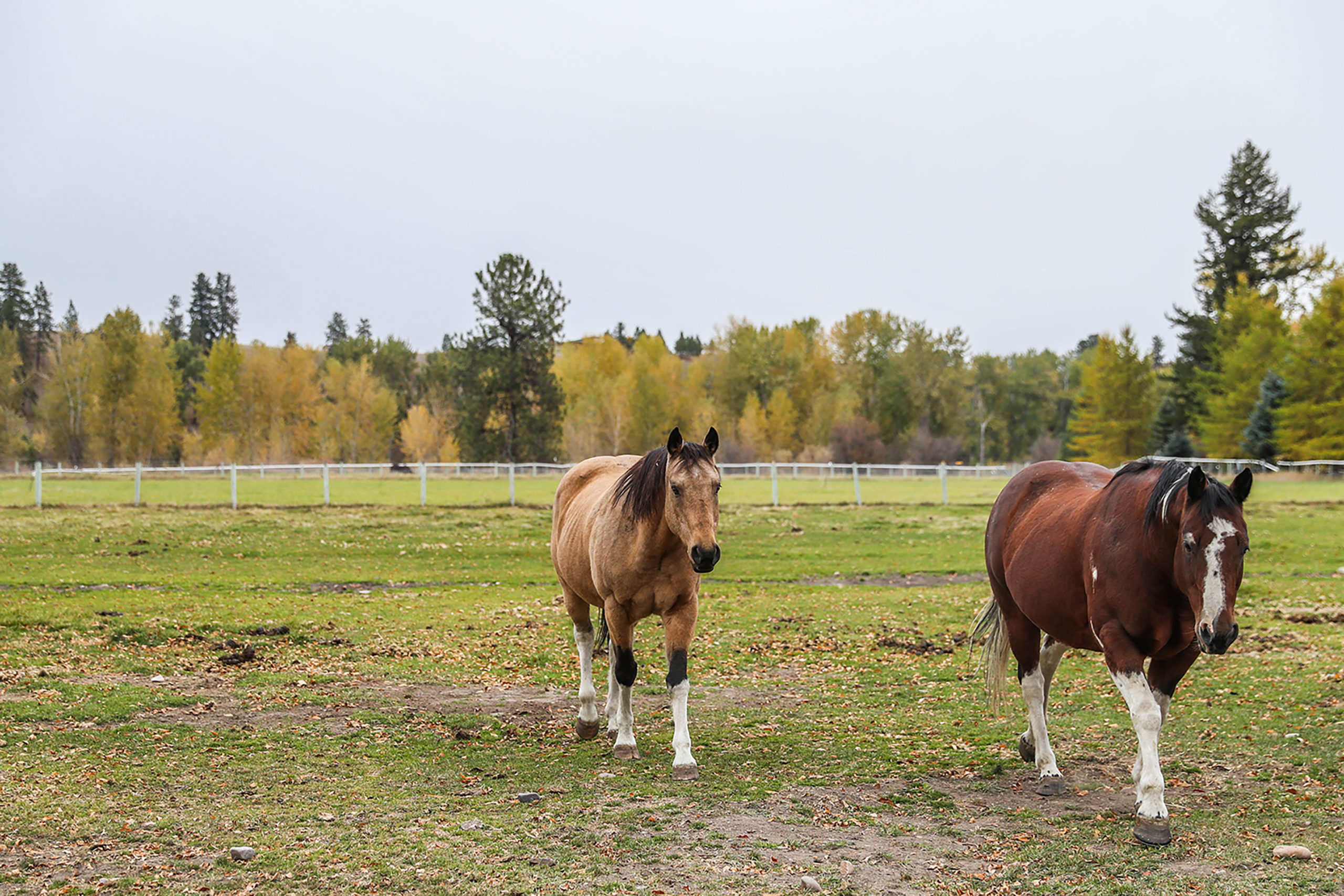
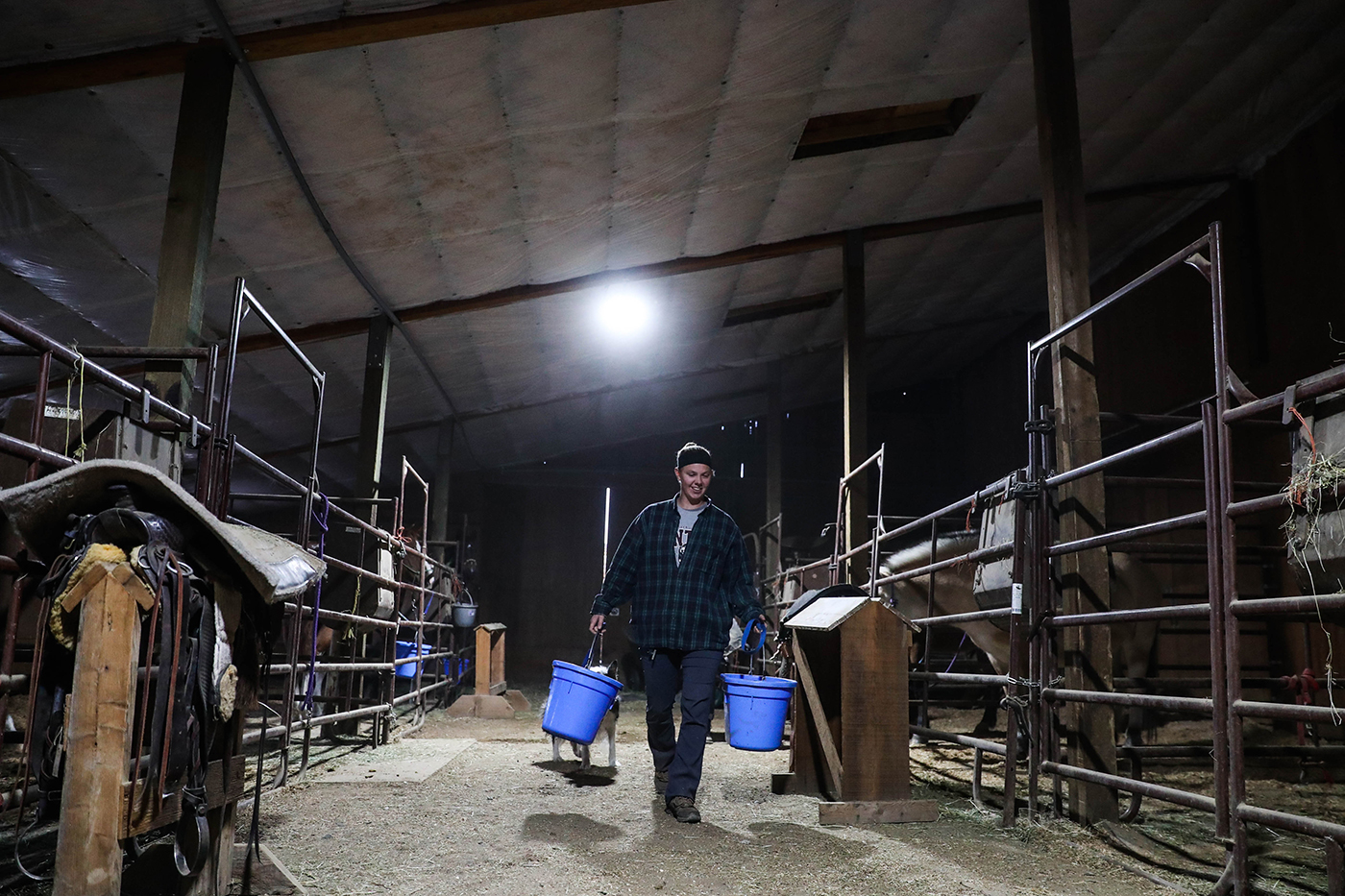
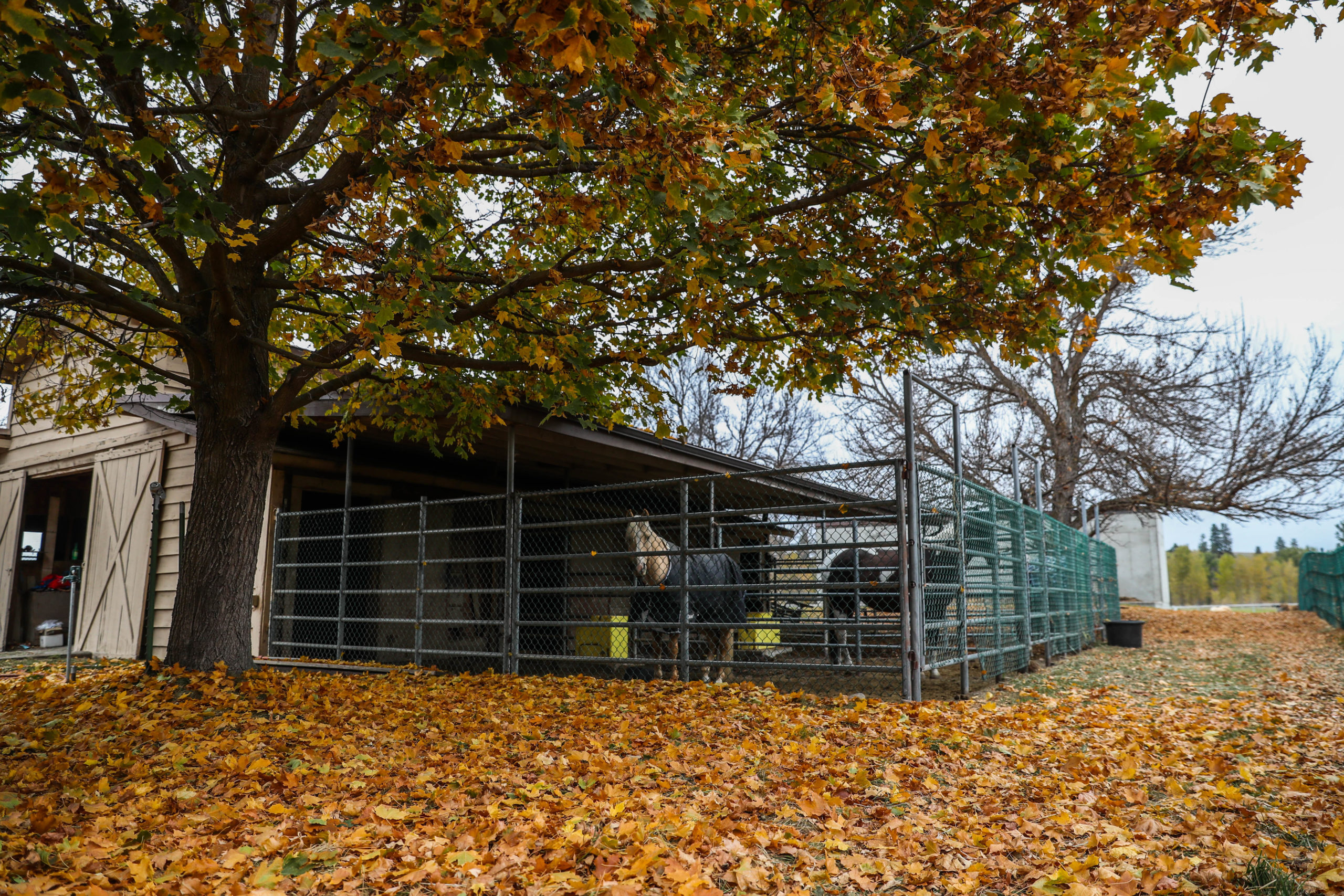
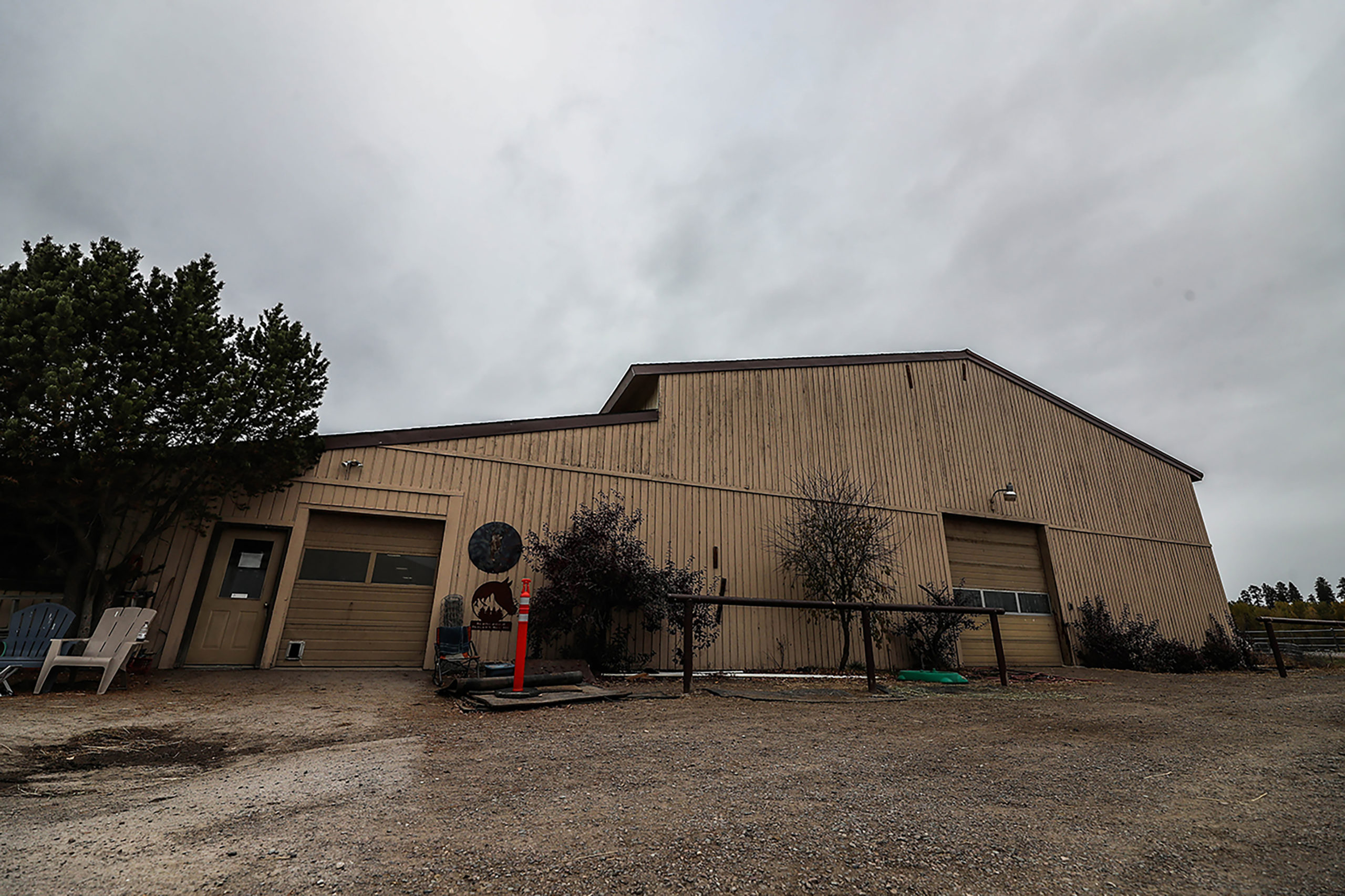
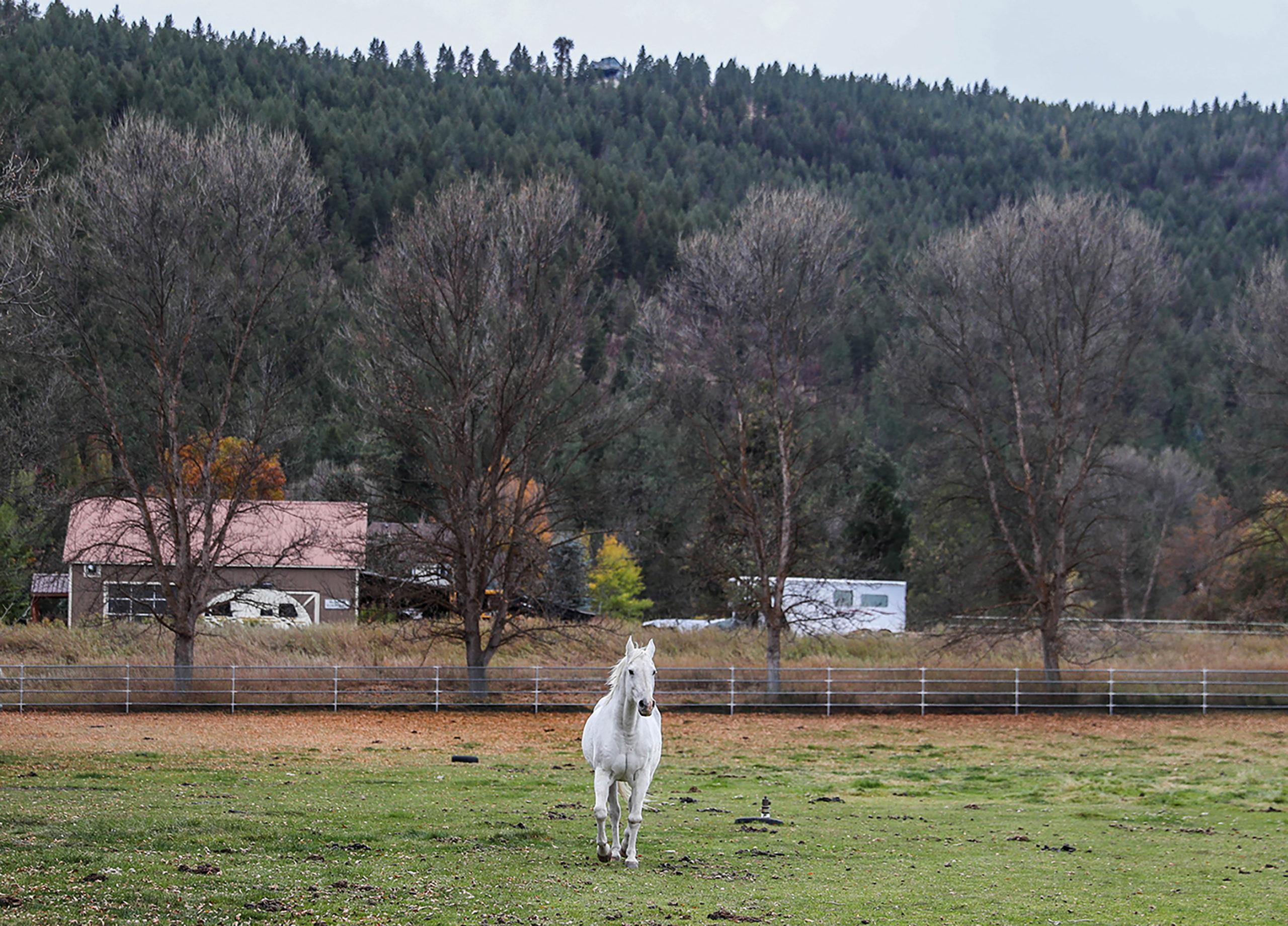
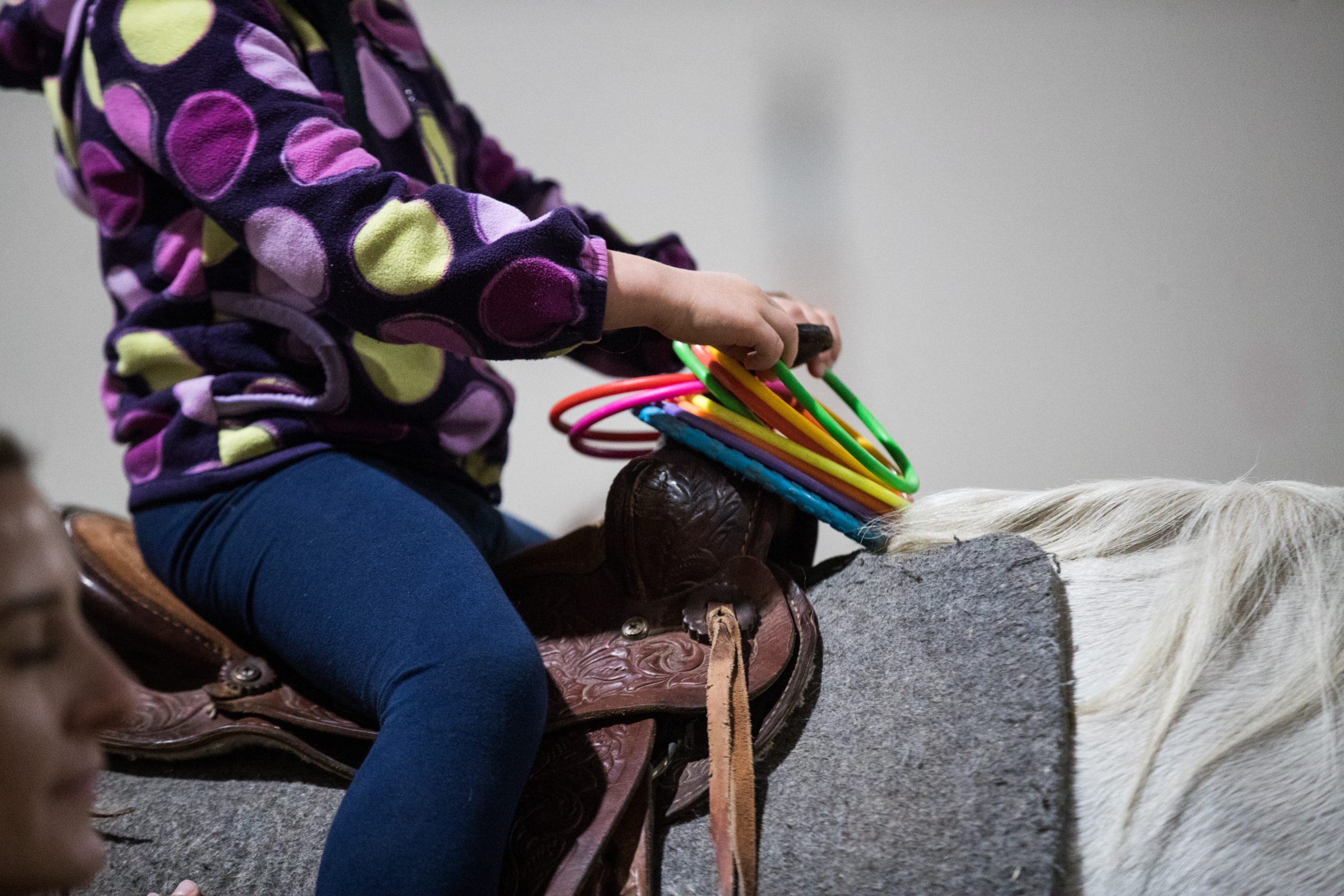
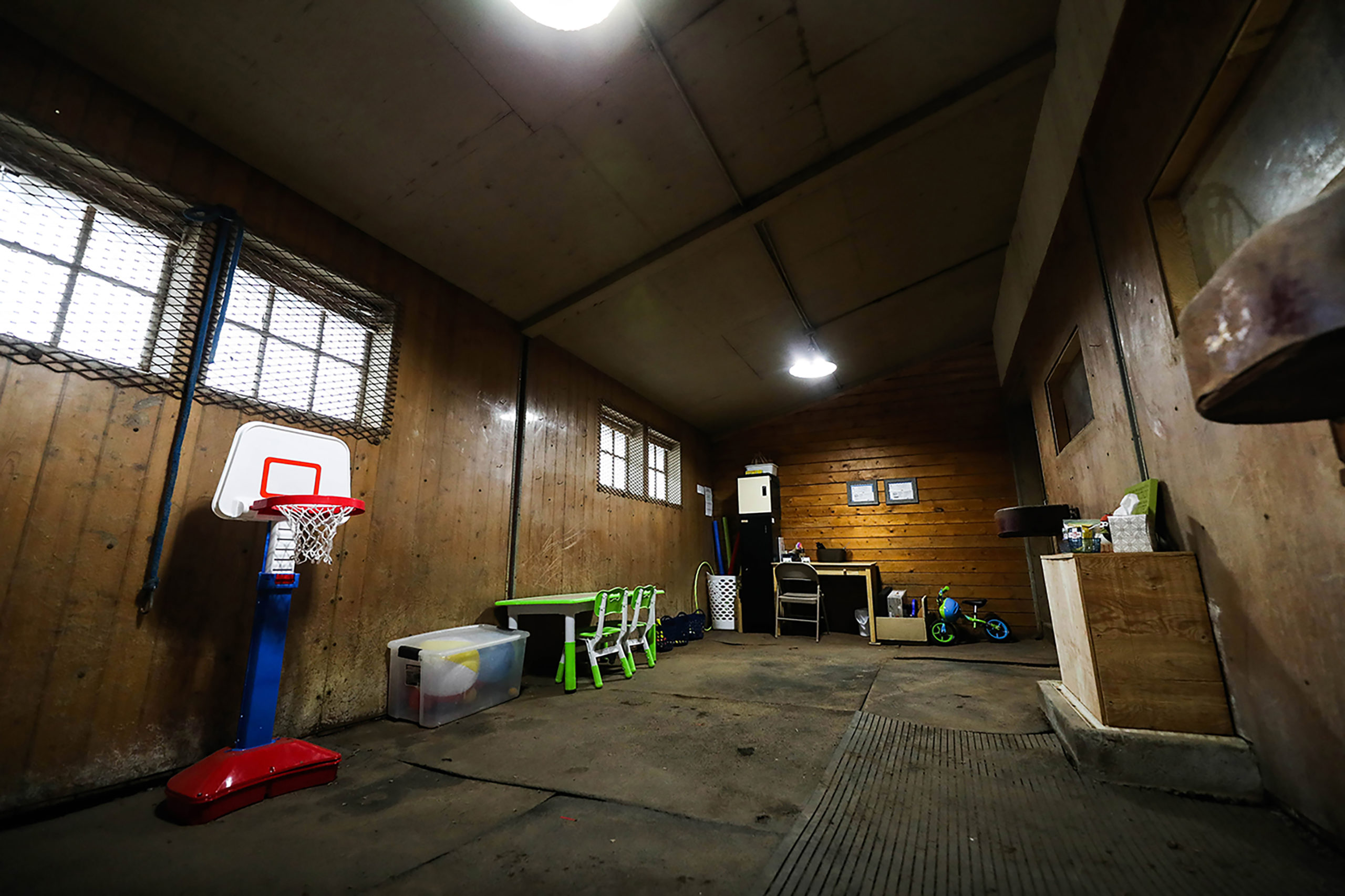
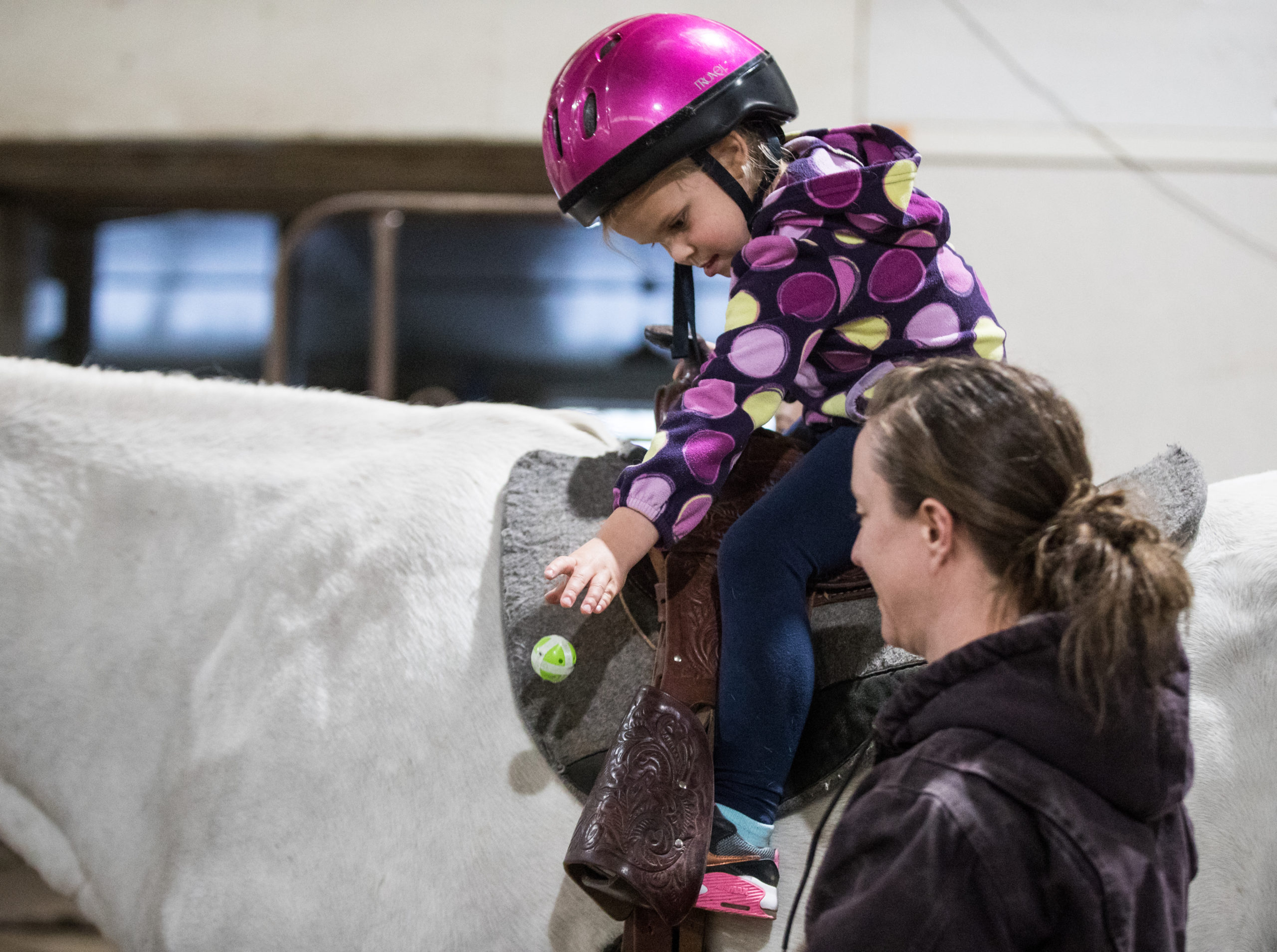
Previous
Next

Facebook
Twitter
Instagram

Copyright © [hfe_current_year] Byline Magazine
